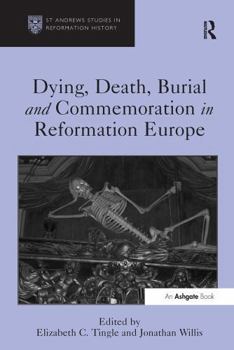Dying, Death, Burial and Commemoration in Reformation Europe
In recent years, the rituals and beliefs associated with the end of life and the commemoration of the dead have increasingly been identified as of critical importance in understanding the social and cultural impact of the Reformation. The associated processes of dying, death and burial inevitably generated heightened emotion and a strong concern for religious propriety: the ways in which funerary customs were accepted, rejected, modified and contested...
Format:Paperback
Language:English
ISBN:1032925663
ISBN13:9781032925660
Release Date:October 2024
Publisher:Routledge
Length:242 Pages
Customer Reviews
0 rating





